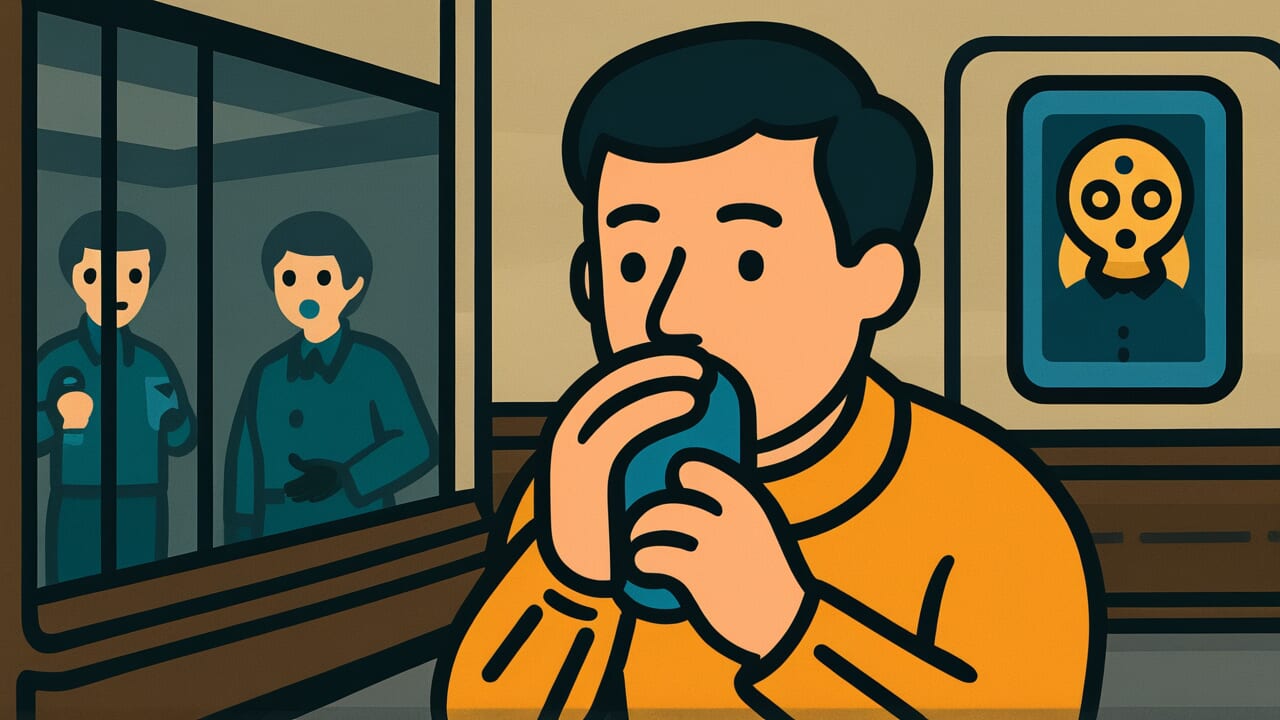How to Read “Don’t wait for the breath that goes out to come back in”
Izuru iki no iru wo mo matsu bekarazu
Meaning of “Don’t wait for the breath that goes out to come back in”
This proverb means there is not a moment to spare when death is approaching. It describes an urgent situation where you cannot wait even the brief time it takes to exhale and inhale again.
People mainly use this saying when someone must rush to see a critically ill person. It also conveys that someone’s final moments are near.
The phrase carries the message: “You must go right now, or you might not make it in time for their last moments.”
The proverb uses breathing, the most basic act of life, to express this urgency. It shows how critical the situation is by saying even one breath—the shortest time imaginable—cannot be spared.
Even today, people use this expression when informing others about a loved one’s critical condition. It communicates that every second counts.
Origin and Etymology
The exact origin of this proverb has several theories. Most scholars believe it came from Buddhist teachings, especially those about impermanence.
“Don’t wait for the breath that goes out to come back in” describes an extremely urgent situation. It means you cannot wait even the brief moment between exhaling and inhaling.
Buddhist philosophy about life’s fragility lies behind this expression. Human life depends on each individual breath. If an exhaled breath doesn’t return, life ends—this shows how uncertain life truly is.
Medieval Buddhist tales and accounts of people’s final moments contain similar expressions. These stories likely helped establish this phrase as a way to describe someone near death.
The structure of the phrase itself emphasizes urgency by using “one breath” as the smallest unit of time. Ancient Japanese people saw breathing as a symbol of life itself.
The expression that you cannot wait even between breaths vividly conveys being on the boundary between life and death. This is why the phrase has been passed down through generations.
Usage Examples
- I received word that my father’s condition suddenly worsened. The doctor said it was a “don’t wait for the breath that goes out to come back in” situation, so I rushed to the hospital.
- When I heard my grandmother was critical, the doctor told me “don’t wait for the breath that goes out to come back in.” I drove through the night to reach her.
Universal Wisdom
This proverb has been passed down through generations because it addresses a universal theme: the inevitable farewell. No matter how advanced medicine becomes or how prosperous our times are, everyone faces final moments with loved ones.
And those moments arrive far more suddenly than we expect.
In daily life, people often fall into the illusion that time is infinite. We assume we can meet tomorrow, talk next week, or express our feelings anytime. But this proverb shatters that illusion by invoking the smallest unit of time—one breath.
It teaches that life is extremely fragile. Even the next breath is not guaranteed.
Our ancestors tried to convey two truths through these words. First, the practical urgency when death approaches. Second, a deeper teaching about life itself.
The time we can spend with loved ones is always limited. We should live in the present without regrets. Those who understand the weight of one breath also understand the value of each moment in life.
When AI Hears This
The inability to re-inhale exhaled breath is not just a metaphor. It is a consequence of physical laws. The approximately 10 to the 22nd power molecules in the breath you just exhaled scatter throughout the room.
The probability of them returning to their original arrangement becomes effectively zero. This is the law of entropy increase—the universal rule that “order always moves toward disorder.”
What’s interesting is that gas exchange occurs in the lungs. Exhaled breath has a different chemical composition than inhaled breath. Oxygen concentration drops from 21 percent to 16 percent, while carbon dioxide increases from 0.04 percent to 4 percent.
Breathing appears to be a back-and-forth motion, but at the molecular level, it is completely one-way chemical reaction. This is a classic example of a seemingly reversible process that is actually irreversible.
There is even deeper meaning here. The arrow of time—the direction from past to future—is defined only by this entropy increase. The everyday phenomenon of exhaled breath not returning is itself the reason time only moves forward.
This proverb is not merely a moral teaching to “cherish the present.” It expresses a physical truth about the nature of time progressing toward the heat death of the universe, using the familiar phenomenon of breathing.
Lessons for Today
This proverb teaches modern people not to postpone time with loved ones. Modern society is busy, and we easily say “maybe next time” or “someday soon.”
But in life, moments truly arrive when there is no “next time.”
If you have someone you want to see, words you want to say, or time you want to spend together, don’t put it off. This proverb describes an extreme situation, but its lesson should be applied to everyday life.
Call your parents. Express gratitude to friends. Share a meal with someone important. This phrase teaches the importance of taking such small actions now.
Of course, you don’t need to live each day in panic. But you do need the courage to identify what truly matters and prioritize it.
Work deadlines can be extended, but life’s deadline cannot. By understanding the weight of one breath, your today can become richer and more meaningful.



Comments